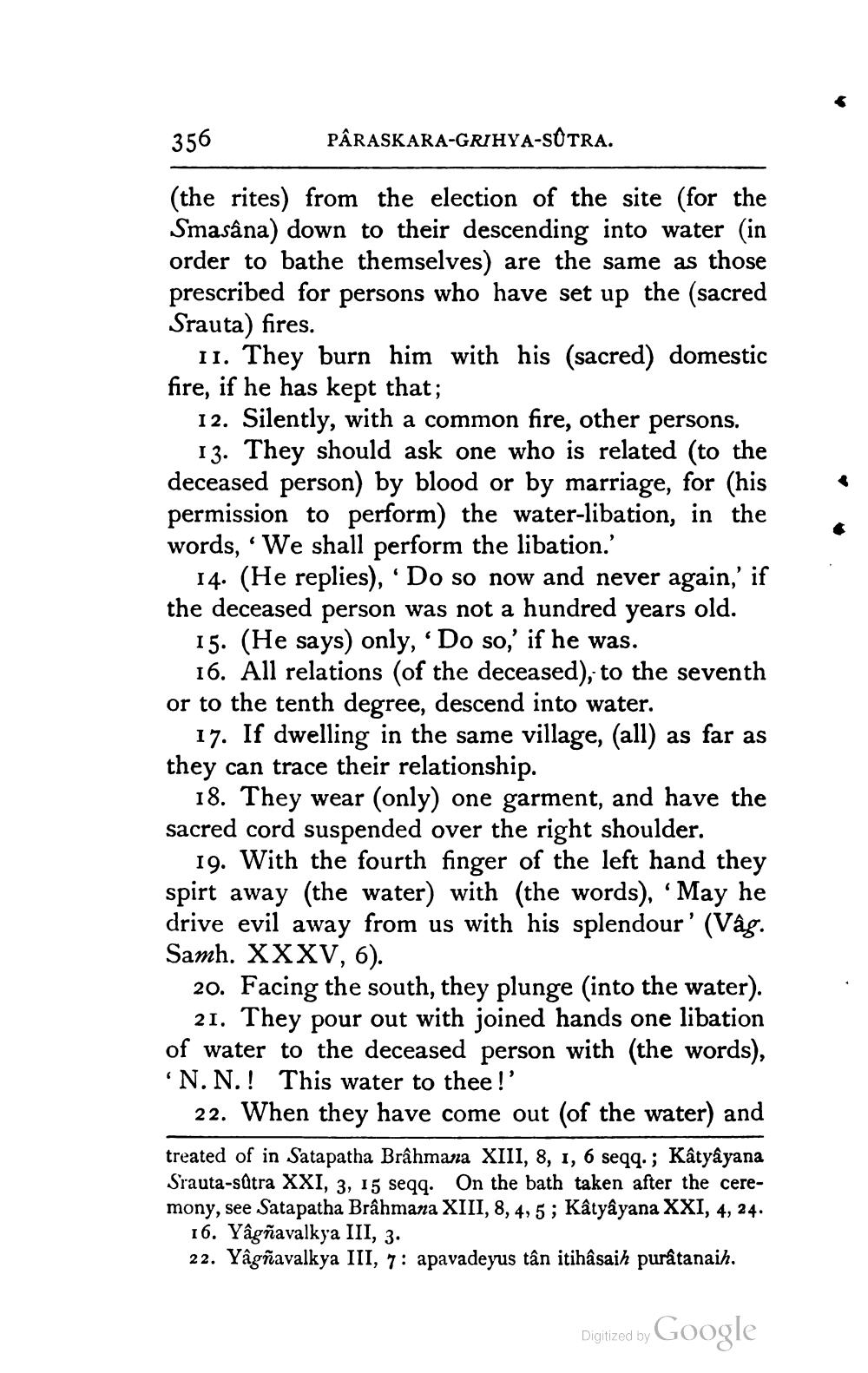________________
356
PÂRASKARA-GRIHYA-SUTRA.
(the rites) from the election of the site (for the Smasâna) down to their descending into water (in order to bathe themselves) are the same as those prescribed for persons who have set up the (sacred Srauta) fires.
11. They burn him with his (sacred) domestic fire, if he has kept that;
12. Silently, with a common fire, other persons.
13. They should ask one who is related (to the deceased person) by blood or by marriage, for (his permission to perform) the water-libation, in the words, 'We shall perform the libation.'
14. (He replies), 'Do so now and never again,' if the deceased person was not a hundred years old. 15. (He says) only, 'Do so,' if he was.
16. All relations (of the deceased), to the seventh or to the tenth degree, descend into water.
17. If dwelling in the same village, (all) as far as they can trace their relationship.
18. They wear (only) one garment, and have the sacred cord suspended over the right shoulder.
19. With the fourth finger of the left hand they spirt away (the water) with (the words), 'May he drive evil away from us with his splendour' (Vâg. Samh. XXXV, 6).
20. Facing the south, they plunge (into the water). 21. They pour out with joined hands one libation of water to the deceased person with (the words), 'N. N. This water to thee!'
22. When they have come out (of the water) and treated of in Satapatha Brahmana XIII, 8, 1, 6 seqq.; Kâtyâyana Srauta-sûtra XXI, 3, 15 seqq. On the bath taken after the ceremony, see Satapatha Brâhmana XIII, 8, 4, 5; Kâtyâyana XXI, 4, 24.
16. Yâgñavalkya III, 3.
22. Yâgñavalkya III, 7: apavadeyus tân itihâsaih purâtanaih.
Digitized by Google




